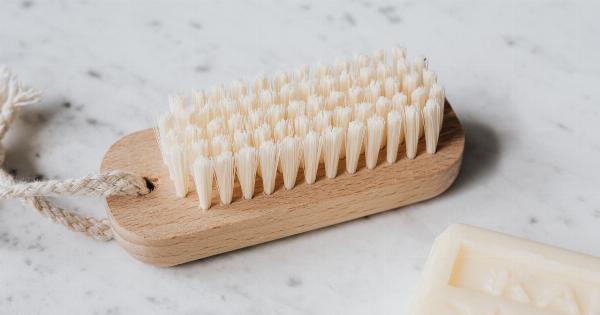Allergy season is the time of the year when many people dread going outdoors due to the relentless onslaught of sneezing, itching, and watery eyes.
If you’re one of the millions of individuals who suffer from allergies, fear not! With the right knowledge and strategies, you can navigate allergy season and enjoy the outdoors without the constant discomfort.
In this guide, we will explore the causes of allergies, common symptoms, and provide effective ways to minimize exposure to allergens, along with natural remedies, over-the-counter medications, and lifestyle changes that can help alleviate allergy symptoms.
The Causes of Allergies
Before diving into strategies to survive allergy season, let’s understand the underlying causes of allergies.
Allergies occur when the immune system mistakenly identifies harmless substances, known as allergens, as threats and triggers an immune response. Common allergens include pollen, dust mites, pet dander, mold spores, certain foods, and insect stings.
When exposed to these allergens, the body releases histamines and other chemicals, leading to the characteristic symptoms we associate with allergies.
Identifying Common Symptoms
Allergy symptoms can vary from person to person and depend on the specific allergen. The most common symptoms include:.
- Sneezing
- Itchy, watery eyes
- Runny or stuffy nose
- Coughing
- Wheezing or shortness of breath
- Itchy throat or ears
- Rashes or hives
- Fatigue
If you experience any of these symptoms during allergy season, it’s a good indication that you are allergic to certain substances in the environment.
It’s essential to identify your specific triggers to implement the most effective strategies to minimize your exposure.
Minimizing Exposure to Allergens
One of the key strategies to survive allergy season is to minimize exposure to allergens. While it’s impossible to completely avoid allergens, certain measures can significantly reduce your exposure and alleviate symptoms.
Here are some practical tips:.
1. Monitor Pollen Levels
Pay attention to local pollen forecasts and plan outdoor activities accordingly. High pollen counts often occur in the morning and on dry, windy days.
Consider staying indoors during these times or wearing sunglasses and protective clothing to limit contact with pollen.
2. Keep Windows Closed
During allergy season, it’s best to keep windows closed to prevent pollen from entering your home. Instead, rely on air conditioning or use air purifiers with HEPA filters to help remove allergens from the air indoors.
3. Regularly Clean Your Living Space
Dust, vacuum, and mop your living space regularly to minimize dust mites, pet dander, and other allergens. Use a damp cloth when dusting to avoid dispersing allergens into the air.
4. Wash Bedding Frequently
Wash your bedding, including pillowcases and sheets, in hot water once a week to remove allergens. Consider using allergen-proof covers for your mattress, pillows, and duvets.
5. Practice Good Personal Hygiene
Shower and wash your hair before bedtime to remove pollen and other allergens from your body and hair. This prevents allergens from transferring onto your bedding and exacerbating your symptoms while you sleep.
6. Avoid Hanging Laundry Outside
Although drying clothes outside is energy-efficient, it can lead to pollen and other allergens clinging to your laundry. Opt for using a clothes dryer or drying clothes indoors during allergy season.
7. Create a Pet-Free Zone
If you are allergic to pet dander, it’s best to designate specific areas of your home as pet-free zones, such as bedrooms or certain furniture. Keep pets off these areas to minimize exposure to allergens.
8. Wear Protective Gear
If you need to do outdoor chores or spend time in nature during allergy season, consider wearing a pollen mask, gloves, and sunglasses to reduce exposure to allergens.
9. Remove Shoes Before Entering
Take off your shoes before entering your home to prevent tracking pollen and other allergens indoors. Consider having a shoe rack or designated area for shoes near the entrance.
10. Consult an Allergist
If your allergies are severe or significantly impacting your quality of life, consider consulting an allergist. Allergists can perform tests to identify specific allergens and recommend personalized treatment plans, including immunotherapy.
Natural Remedies to Alleviate Symptoms
In addition to minimizing exposure to allergens, several natural remedies can help alleviate allergy symptoms. While these remedies may not work for everyone, many individuals find relief using these alternative approaches.
It’s essential to consult with a healthcare professional before trying any new treatments. Here are a few natural remedies to consider:.
1. Nasal Irrigation
Using a saline solution or a neti pot can help flush out allergens and relieve nasal congestion.
It’s crucial to use distilled or sterile water and clean your irrigation device properly to avoid introducing bacteria or other contaminants into your nasal passages.
2. Local Honey
Some people believe that consuming local honey, which contains traces of local pollen, can help build immunity and reduce allergy symptoms.
While scientific evidence is limited, if your allergies are triggered by pollen, it may be worth giving it a try.
3. Quercetin
Quercetin is a natural plant pigment found in certain fruits, vegetables, and supplements. It has antioxidant and anti-inflammatory properties and may help reduce the release of histamines.
Consult with a healthcare professional before adding quercetin supplements to your routine.
4. Probiotics
Research suggests that probiotics, often referred to as “good” bacteria, can modulate the immune system and potentially reduce allergy symptoms.
Incorporate probiotic-rich foods like yogurt, kefir, sauerkraut, or consider taking probiotic supplements after consulting with a healthcare professional.
Over-the-Counter Medications
If natural remedies are not providing sufficient relief, over-the-counter medications can help manage allergy symptoms. These medications are available without a prescription and can be highly effective in alleviating symptoms.
Here are some common types of over-the-counter allergy medications:.
1. Antihistamines
Antihistamines block the release or action of histamines, reducing the symptoms of sneezing, itching, and runny nose. They come in various forms, such as tablets, nasal sprays, or eye drops.
Non-drowsy formulations are available for those who need to remain alert throughout the day.
2. Decongestants
Decongestants help relieve nasal congestion by constricting blood vessels, which reduces swelling and mucus production.
They are available in oral or nasal spray forms, but prolonged use of nasal sprays can lead to rebound congestion, so they should be used only as directed.
3. Nasal Steroids
Nasal steroid sprays help reduce inflammation and alleviate nasal allergy symptoms. They are typically used on a daily basis and often take a few days to provide maximum relief.
It’s important to use them consistently and as directed for optimal results.
Lifestyle Changes to Support Allergy Relief
In addition to natural remedies and over-the-counter medications, making certain lifestyle changes can also contribute to better allergy management. Here are a few lifestyle tips:.
1. Stay Hydrated
Drinking plenty of water can help thin mucus secretions and reduce congestion. It’s important to stay properly hydrated, especially during allergy season.
2. Eat a Healthy Diet
A diet rich in fruits, vegetables, and whole grains provides essential vitamins, minerals, and antioxidants that support immune function. Certain foods, such as citrus fruits, red bell peppers, and broccoli, are known to boost the immune system.
3. Exercise Indoors
During high pollen days, consider exercising indoors to minimize exposure to outdoor allergens. Indoor activities, such as yoga, Pilates, or using a treadmill, can help you stay active without aggravating your allergies.
4. Manage Stress
Stress can worsen allergy symptoms, so adopting stress-management techniques, such as deep breathing exercises, meditation, or engaging in hobbies, can help reduce the impact of allergies on your overall well-being.
5. Create a Clean Sleeping Environment
Use allergen-proof covers for your pillows, mattresses, and duvets to reduce exposure to dust mites and other allergens while you sleep. Additionally, regularly washing your bedding in hot water can help eliminate allergens.
Conclusion
Allergy season doesn’t have to be a constant battle against uncomfortable symptoms.
By understanding the causes of allergies, identifying your triggers, and implementing effective strategies to minimize exposure to allergens, you can navigate allergy season with ease. Additionally, natural remedies, over-the-counter medications, and incorporating certain lifestyle changes can further support allergy relief. Remember to consult with a healthcare professional or allergist for personalized advice and treatment options.
With the right approach, you can survive allergy season and enjoy the great outdoors symptom-free!.































